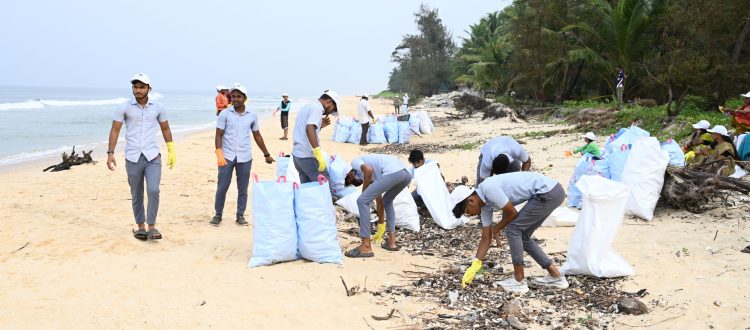A Clean-Up Drive For The Big Fish
Every year, 300 million tonnes of plastics are produced and at least 14 million tonnes of these plastics end up in the ocean. And this act of ours collectively has severely affected marine fauna, flora, and ocean ecosystems. Plastics are ubiquitous in our daily life, we buy milk packets, shampoo, and even vegetables, fruits, chocolates even snacks that come in plastic wrappers. If we continue to dump plastic and pollute our oceans the consequences will be grave for the oceans produce more oxygen than terrestrial ecosystems.
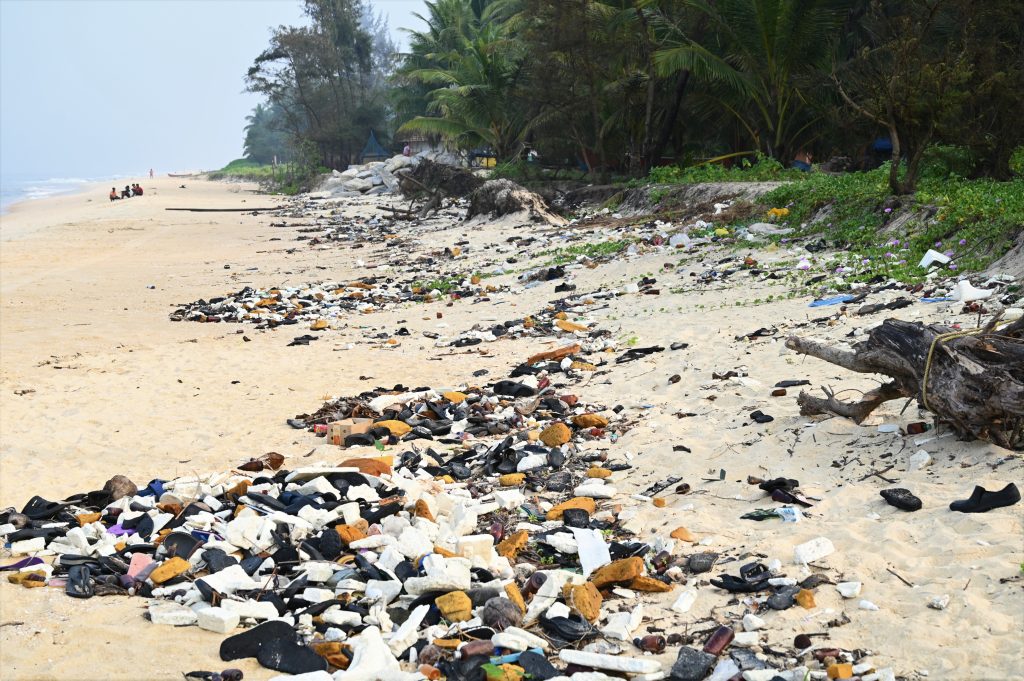
Shoreline plastic debris at Kodi beach; Photo by Aditya
Thousands of marine species ingest, suffocate, or get entangled in marine debris. This also includes the Whale Shark, the largest fish. Wildlife Trust of India has launched, “Save the Whale Shark Campaign” along coastal Karnataka, Kerala, and Lakshadweep islands to address pressing issues on marine conservation. This conservation campaign is supported by Oracle. Whale Sharks can grow to a length of approximately 18m and weigh close to 21 metric tons. They swim across tropical and warm temperate seas, feeding on phytoplankton. Since they are filter feeders, plastics and other marine debris are a huge threat to their survival.
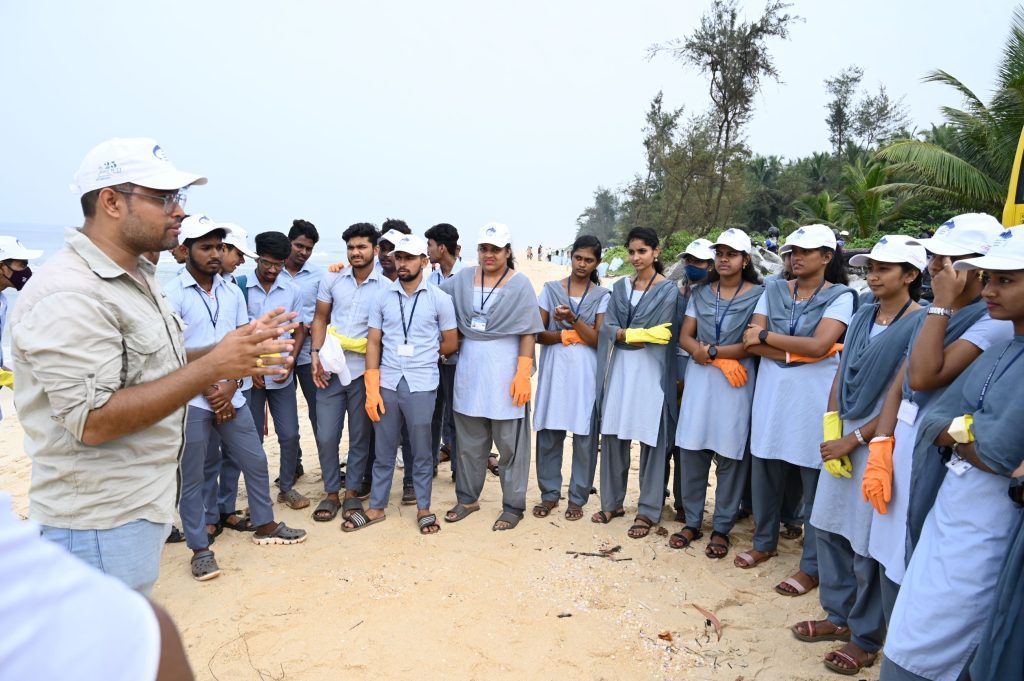
WTI official giving instructions to the students before the clean-up drive; Photo by Aditya
On October 30, WTI’s campaign team, along with the fisher communities of Udupi, college students, and local NGOs formed an alliance to clean the shoreline plastic debris of Kodi beach, Udupi, Karnataka. Kodi beach was strategically chosen as it is in the center of the project site in the Udupi district. Considered to be a hidden gem, the beach has seen a rapid influx of tourists in recent years. The golden sandy beach is spread over a kilometer and is also popular for dolphin sightings.
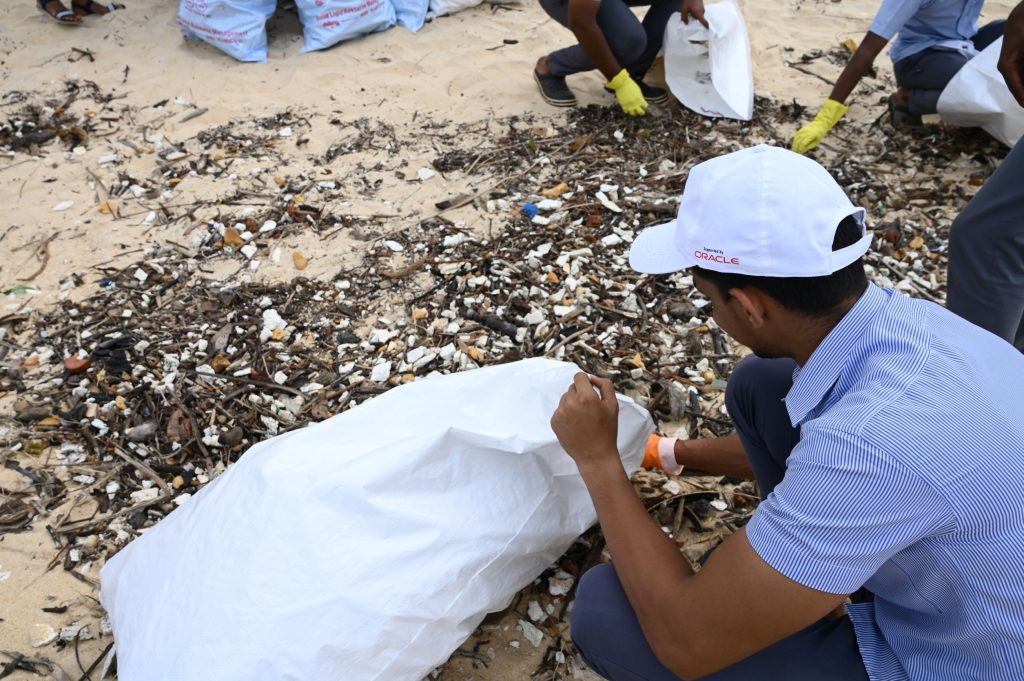
Students cleaning the shoreline plastic debris at Kodi beach; Photo by: Aditya
Over 150 individuals joined hands to remove 1.2 tons of debris. The debris will be stored for recycling by the Karnataka Fisheries Department. As a part of the campaign, the WTI team is sensitizing the community on the importance of a plastic-free ocean. A series of beach clean-up drives are being planned across the Karnataka and Kerala coasts as part of the campaign to save the whale shark. Further, these campaign activities are bringing people together for a successful community-driven conservation project.
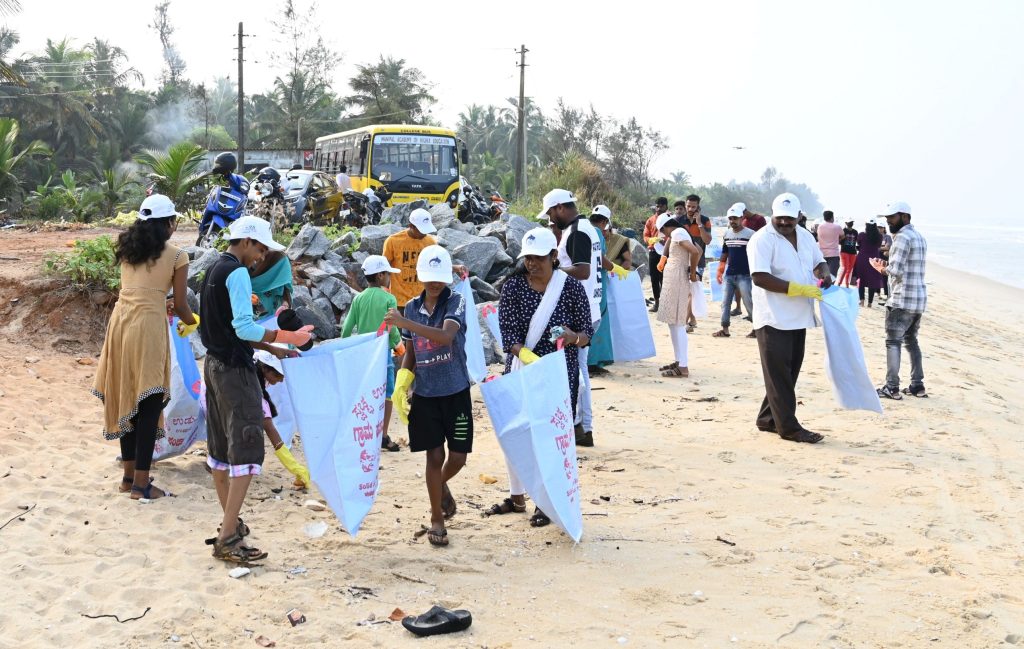
Over 150 individuals including the fisher communities of Udupi, college students, and local NGOs joined hands to remove 1.2 tons of debris from Kodi beach; Photo by Aditya
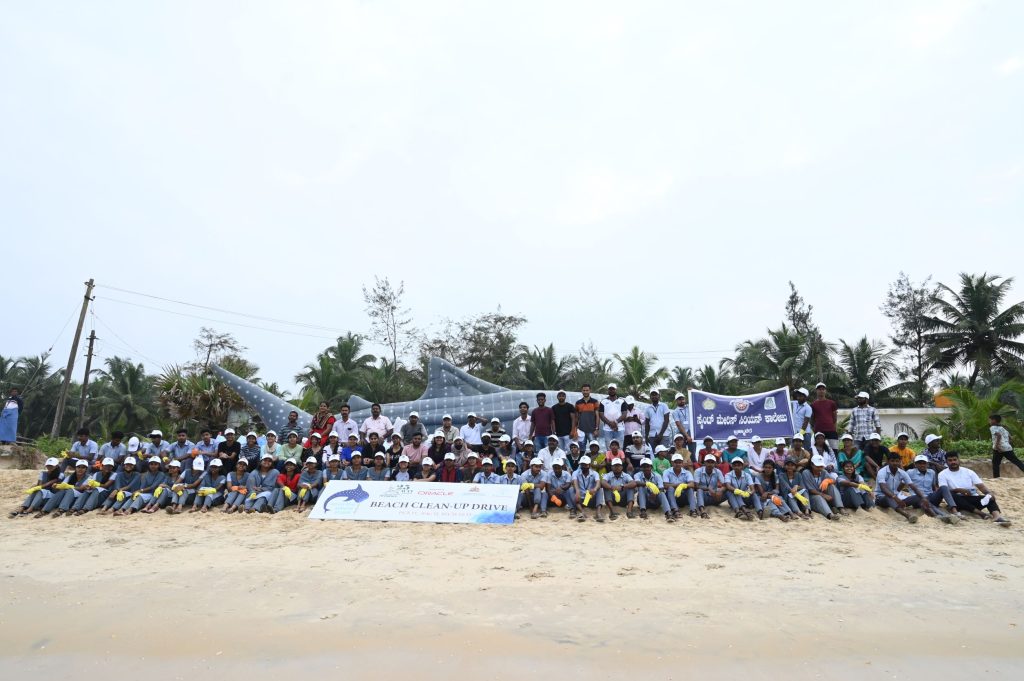
Volunteers with the Whale Shark Inflatable; Photo by Aditya
Through this campaign, WTI aims to achieve the larger goal of zero accidental entanglements of whale sharks in fishing nets and bring the unnatural mortality of the whale shark to zero in Indian waters. As a part of the campaign, a mobile application was launched by WTI to maintain an archive of whale shark sightings along with other marine mega-fauna. Various school activities are also planned to encourage future cohorts in conservation. We are thankful to Oracle and the state fisheries department, forest department, and the communities for their support.

